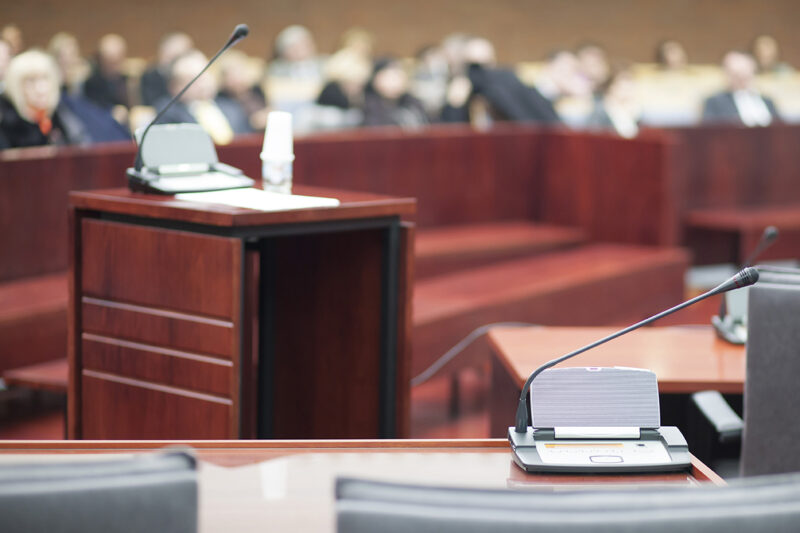
Innocent unless proven guilty…
These words are the bedrock of our criminal justice system. Yet for many Americans who are currently navigating the justice system maze, this fundamental principle is but a dream—a reminder of what could be, if only they had the money to pay for a lawyer with the time and resources to represent them effectively.
Adequate representation in court is mandated by law. Before the government can take away a person's liberty, the Sixth Amendment requires that the case against the defendant be put to the test. It is largely up to criminal defense attorneys to make sure the state fulfills that requirement. The failure of the State of Idaho to ensure all public defenders there have the resources they need to do so in an effective way puts the entire system—not to mention the liberty and livelihoods of criminal defendants—in jeopardy.
When these same issues arose in Michigan and New York in recent years, the ACLU stepped in and sued both states for their longstanding failure to provide public defenders with the tools and resources they need to represent their clients in a meaningful way. Both cases resulted in wholesale changes to public defense delivery in those states. And in 2013, a federal court ruled that the structural flaws of the public defense systems in two municipalities in Washington deprived indigent criminal defendants of their Sixth Amendment right to counsel.
Most recently, The ACLU, the ACLU of Idaho, and the law firm Hogan Lovells filed a class action lawsuit against the state of Idaho asking the court to force the state to fix its unconstitutional system of public defense. The case was brought after years of advocacy and alternative efforts at encouraging state officials to address the problem with real solutions—and real funding.
The process began in 2010, when the National Legal Aid and Defender Association released a report analyzing the representation provided to criminal defendants in Idaho's trial courts. The report found that "none of the public defender systems in the sample counties are constitutionally adequate." Despite this disturbing reality, the Idaho Legislature has failed to make the necessary changes to ensure that anyone prosecuted for a crime in Idaho—regardless of income level—has access to an attorney with the time, training, and resources to represent them effectively.
Five years later, nothing has changed.
Low-income defendants are still unrepresented at their initial bail hearings, resulting in many pleading guilty and suffering lifelong consequences just because they felt they had no other realistic options, and in others spending extended time in pretrial detention. Public defenders are so overloaded in many counties that defendants are unable to communicate with their attorneys on a consistent basis, leaving them in the dark regarding developments in their own cases. Worst of all, without adequate resources, many public defender offices lack the resources needed to thoroughly investigate many cases, if at all, leading many defendants—even while proclaiming their innocence—to simply plead guilty rather than risk going to a trial where the playing field is tilted in favor of a better-funded prosecution.
In January 2015, even Idaho's Gov. "Butch" Otter acknowledged that "the courts have made it clear that our current method of providing legal counsel for indigent criminal defendants does not pass constitutional muster." Despite the governor's admission, and the various committees and commissions that have been formed to study the issue over the last few years, the reality is that some of the most vulnerable people in Idaho continue to fall victim to this failing system.
It is the state's responsibility to ensure that people charged with crimes within its borders are given a full and fair opportunity to defend themselves in court—and that can only be achieved when public defenders have access to the training and resources they need to zealously advocate on all of their clients' behalf. As the U.S. Supreme Court reminded us more than 50 years ago, "The right of one charged with crime to counsel may not be deemed fundamental and essential to fair trials in some countries, but it is in ours."


